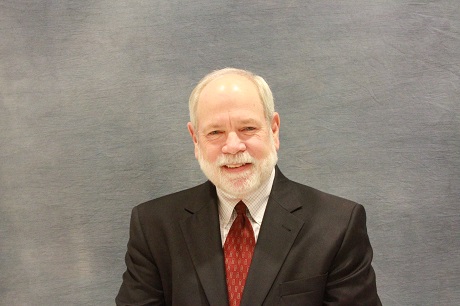
I’ve engaged in periodic conversation with David Naugle, Distinguished University Professor, chair and professor of philosophy at Dallas Baptist University, for quite some time. Why? To wrestle with “the heart” and the history of worldview, not only only in an “academic” sense, but also in the life and ministry to which I have been called as a part of InterVarsity Christian Fellowship. As you may remember Mike Hickerson interviewed David on Reordered Love, Reordered Lives: Learning the Deep Meaning of Happiness (William B. Eerdmans, 2008) at the 2010 CCO Jubilee Conference. Before digging into Worldview: The History of a Concept (William B. Eerdmans, 2002) a little more on David . . .
He is married to Deemie Naugle, the Associate provost at Dallas Baptist University and has been for many years; they have one daughter, Courtney who is working in West Dallas at a non-profit organization. He has two earned doctorates, one in theology and the other in philosophy and literature. He has written four books and three screenplays. He attends the Village Church in Dallas.
Alright, now let’s turn to the interview, with me taking fully responsibility for the related pictures and links 🙂

Tom: David, As I mentioned to you in a previous conversation, Building a Christian Worldview — co-edited by two professors from campus [W. Andrew Hoffecker and Gary Scott Smith] — framed part of the core curriculum while I was a student at Grove City College. In addition, serving InterVarsity Christian Fellowship has provided the opportunity to get to know James W. Sire in a number of capacities [Sire was formerly a senior editor at InterVarsity Press. In addition, he is the author of a number of books including The Universe Next Door: A Basic Worldview Catalog and the recently released Echoes of a voice: We are not alone]. So when William B. Eerdmans published Worldview: The History of a Concept (2002), I couldn’t wait to “mine its treasures”. Since Worldview: The History of a Concept continues to provide a valuable resource for my labors with the Emerging Scholars Network, I thought our members would benefit from learning more about it from the source 🙂 To begin our brief exchange, What is the story behind the publication of Worldview: The History of a Concept and why you have taken so much interest in the topic as a philosophy professor at Dallas Baptist University?
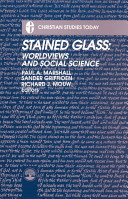
David: Tom, I read a book called Stained Glass: Worldviews and Social Science and this book had a paper (it was a collection of papers presented at a conference) by Albert M. Wolters on the Relationship of Worldview and Philosophy. Wolters had one page on the history of worldview theory in his paper in which he said he had done some research in a 20 page unpublished paper on the history of worldview. I thought that would be an interesting topic to explore and I asked Dr. Wolters for a copy of that paper and he sent it to me. I wrote a 600 page doctoral dissertation on the history of the concept of worldview for a Ph.D. program at the University of Texas at Arlington. It was accepted, won dissertation of the year award at the University, and became the basis for Worldview: the History of a Concept (William B. Eerdmans, 2002). I am happy to say this book won Christianity Today‘s book of the year award in 2003 among 29 entries in the theology and ethics category. I hope it makes a solid contribution on such an important topic!
Tom: Wow! How exciting to learn more about the background of, the research behind, and the recognition of the Worldview: the History of a Concept. By-the-way, I too have appreciated the work of Albert M. Wolters, in particular incorporating elements of Creation Regained: Biblical Basics for a Reformational Worldview (Wm. B. Eerdmans Publishing Company; 2 edition, 2005) into my labors with InterVarsity Christian Fellowship. With regard to Worldview: the History of a Concept, please give us a peek into
- how you settled on the material to be addressed in this publication
- its organization/format
- how you anticipated the material to be used by individuals for personal study, campus ministers, professors, Christian colleges, local congregations, etc.
- some of the response you have found to the publication, in particular who you think has benefited the most.
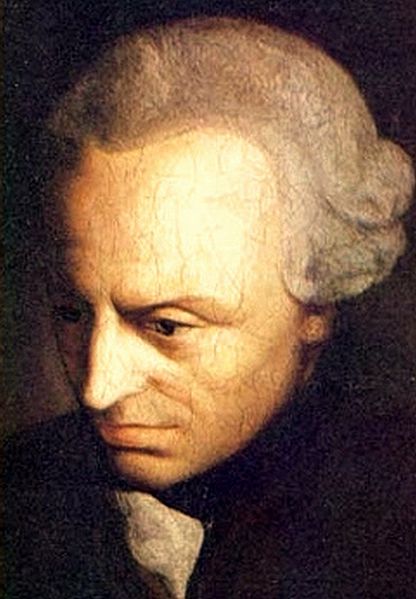
David: Organizationally, I dealt FIRST with Christian thinkers and the rationale was that since so much had been made of the worldview concept in the main branches of Christianity, especially protestant evangelicalism, a study of the history of the concept seemed in order. I chose major thinkers from Immanuel Kant to the present (I. Kant coined the term – “worldview” or in German Weltanschauung). This history had been done in German, but not in English. So I addressed philosophy in the 19th and 20th centuries, and then the use of the concept in several major disciplines like the natural and social sciences. I then reflected on the biblical meaning of worldview, associating it with the human heart in both the Old Testament (Leb and Lebab) and the New Testament (kardia), then its philosophic power as a semiotic system of narrative signs that govern knowledge, epistemology and hermeneutics. I concluded the volume with some thoughts about the strengths and weaknesses of using worldview in the protestant evangelical church, and saw it as something that opened up the narrative of Scripture and led to the transformation of students. Tom, I didn’t make a biblical worldview into an object of apologetic defense, but rather Biblical and Christian sanctification; my hope has been that the book will be especially useful for Christian teachers, professors and students. And they have probably benefited the most from it. For personal study, I have recommended chapters one, two, nine and eleven.
Tom: David, Getting back to the big picture, what three or four points do you desire every reader to take away from Worldview? What points do consider particularly important for those considering next steps in higher ed? Any particular “characters” or “perspectives” Emerging Scholars should be sure to read up on and be prepared to interact with?

David: Here are the most important points in the book:
- Protestant evangelicals have been the most industrious in using the worldview concept.
- Worldview has an extensive and distinguished historical pedigree!
- Soren Kierkegaard says commonality in a worldview is necessary for friendship.
- The primitive worldview as espoused by Robert Redfield in Anthropology has more in common with biblical faith than other alternatives.
- There are strengths and weaknesses associated with the use of the worldview concept in the protestant evangelical church
- Worldview has considerable sanctifying power in showing the big picture of the biblical faith to students and others.
For those considering steps in higher ed, be familiar with the larger biblical story via worldview in God, creation, fall and the two stages of redemption. Characters to know about regarding worldview would be the little known thinker Wilhelm Dilthey, and the contributions of Michael Polanyi and Thomas Kuhn in the natural sciences (philosophy of). And keep an eye on worldview thinking by Nancy Pearcey and the Colson Center for Christian Worldview (and many, many others).
Tom: To wrap up David, please share with Emerging Scholars an encouragement regarding the value of their role in the Kingdom God and next steps in being “little Christs” not only on campus but as they graduate and steward the gifts/training they have been given. Any particular resources to commend to Emerging Scholars as they take next steps in growing more and more into the image of Christ Jesus?
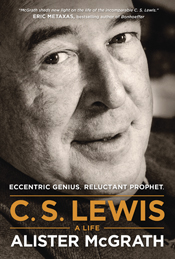
David: It’s just great to be a college professor! You get to teach, write, travel and work with young people; what could be better? And to top it all off, you are on the cutting edge of the forward progress of the kingdom of God (Be careful though, if you are on the cutting edge you will bleed if you are a little Christ – the big One did!). I’d read up on C.S. Lewis via his own writings and the plentiful writings about him (like Alister McGrath’s recent biography) and ESN is a great ministry to become familiar with various resources. There is a “worldview” segment of contemporary Christianity that is very much worth tapping into!
Tom: David, Thank-you for once again sharing your time, gifts, and insights with us! May God continue to bless your labors on behalf of the Kingdom of God—in particular your expanding work in the arts. I look forward to pulling together the material from our conversation regarding Philosophy: A Student’s Guide (Crossway, 2012) and posting it next week. To God be the glory!
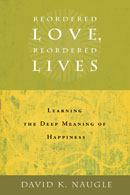
Note to those who are members of and/or follow the Emerging Scholars Network:
- If you have not already done such, I encourage you to set aside a few minutes not only to read Mike’s earlier interview on Reordered Love, Reordered Lives: Learning the Deep Meaning of Happiness (William B. Eerdmans, 2008), but also my follow-up interview on Philosophy: A Student’s Guide (Crossway, 2012).
- In developing your summer reading list, be sure to draw perspective shaping material found in resources mentioned in this post, Hot off the Press: Campus Resources from IVP ’13, and ESN Blog Book Reviews. Note:
- All Eerdmans books qualify for the 20% ESN Member Discount.
- All IVP books qualify for the 30% ESN Member Discount.
- Pray for insight regarding how to further develop ESN’s partnership with IVP. Note: This afternoon I will have conversation with Deborah Gonzalez, our IVP Representative. I cannot wait for the opportunity to connect with Deborah regarding next steps. Our conversation will include not only recommendations of what to highlight in our 2014-2015 Campus Resource List, but also how members of ESN can most benefit from the resources offered by IVP.
- Update (5/19): Deborah and I had a great conversation! The 2014-2015 Campus Resource List is in motion. It will be ready for the fall and additional ideas are starting to take form. Stay tuned 🙂
- If you (and possibly a summer reading group of which you are a member) desire to write a book review and/or conduct an author interview, then please be in touch with me to explore this idea/opportunity further 🙂
To God be the glory!
Update: 5/15/2014, 12:27 pm. Update: 5/19/2014, 10:09 am
Tom enjoys daily conversations regarding living out the Biblical Story with his wife Theresa and their four girls, around the block, at Elizabethtown Brethren in Christ Church (where he teaches adult electives and co-leads a small group), among healthcare professionals as the Northeast Regional Director for the Christian Medical & Dental Associations (CMDA), and in higher ed as a volunteer with the Emerging Scholars Network (ESN). For a number of years, the Christian Medical Society / CMDA at Penn State College of Medicine was the hub of his ministry with CMDA. Note: Tom served with InterVarsity Christian Fellowship / USA for 20+ years, including 6+ years as the Associate Director of ESN. He has written for the ESN blog from its launch in August 2008. He has studied Biology (B.S.), Higher Education (M.A.), Spiritual Direction (Certificate), Spiritual Formation (M.A.R.), Ministry to Emerging Generations (D.Min.). To God be the glory!

Interesting, but as an anthropologist, I cringe at the use of Redfield’s discussion of primitive worldview. It was made up and not a product of Redfield’s own ethnographic research. In fact, implicit in Redfield’s work was a form of 19th century social evolutionism of the sort espoused by Herbert Spencer and Redfield’s father-in-law, Robert Ezra Park. The result was a creation of the “primitive” to suit a social evolutionary framework. To do this, Redfield relied heavily on the archaeologist V. Gordon Childe and his work on the rise of civilization in the Near East. Basically, the portrayal of worldview in Redfield’s book is fantasy. Putting aside the problems with the term “primitive,” at the time of Redfield’s writing (the early 1950s), cultures classified as “primitive” were quite variable and did not conform with Redfield’s generalizations.
This does not diminish Dr. Naugle’s point that the worldview produced by Biblical faith is not consistent with the worldview of “civilization” (which in the totality of Redfield’s work is European-derived urban society). Instead, I would suggest that his argument is strengthened by not generating a link between faith and (Redfield’s fantasized) “primitive worldview.”
David Naugle’s Worldview: The History of a Concept (2002) came at precisely the right time. The concept of worldview had become almost a household word among thoughtful Christians by the end of the 20th century. It was time for David’s history. Without that history, I would not have been able to write Naming the Elephant (IVP, 2004). I relied on his careful scholarship to clarify the various ways the term and concept of Weltanschauung had been defined. From that I refined my own definition first proposed in the first edition of The Universe Next Door (1976) and have used that Naugle-influenced definition in the fourth and fifth editions. It’s now time for Naming the Elephant to be revised, and that in fact is in process.
Thanks, Kevin Birth (above) for your comments from anthropology! The ms. for the revision of Naming is at the publisher but I will have a chance to look at it before it reaches the press In the current edition of Naming the Elephant. I’ve made my own “primitive” comments on Redfield (just noting the questions Redfield says a worldview addresses). I may need to reexamine what I’m saying in the revised edition.
In any case the naming / defining of “worldview” as a concept is a bit like T. S. Eliot’s puzzling out the three different names of every cat. It’s a difficult matter, he says.
In any case, Naugle’s Worldview: The History of a Concept is brilliant.